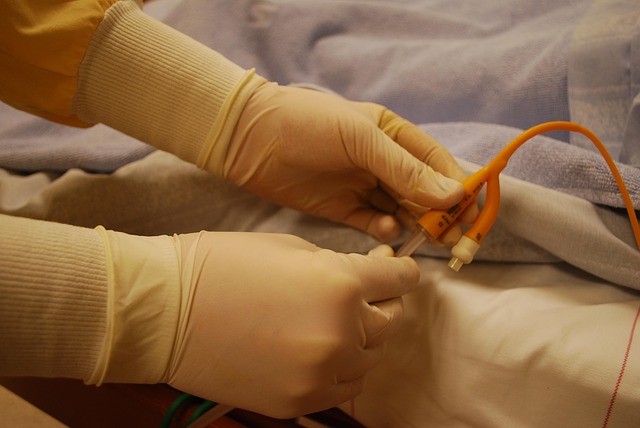Lung Cancer Therapy: Innovations Driving Hope
Discover the latest breakthroughs in lung cancer treatment, from precision surgeries to groundbreaking immunotherapies. This comprehensive guide explores how cutting-edge medical advancements are transforming patient outcomes and offering renewed optimism in the fight against one of the world's most prevalent cancers. Learn about personalized treatment strategies and the promising future of lung cancer care.

The landscape of lung cancer treatment has undergone a remarkable transformation in recent years, offering new avenues of hope for patients grappling with this formidable disease. As medical science continues to advance, a multifaceted approach to treatment has emerged, combining traditional methods with innovative therapies to combat lung cancer more effectively than ever before.
Surgical Precision: The Cornerstone of Early Intervention
For patients diagnosed with early-stage lung cancer, surgery remains the gold standard of treatment. Modern surgical techniques have evolved to become increasingly precise, allowing for the removal of tumors while preserving as much healthy lung tissue as possible. Minimally invasive procedures, such as video-assisted thoracoscopic surgery (VATS), have revolutionized the field, offering shorter recovery times and reduced complications compared to traditional open surgeries.
However, surgery is just the beginning of the treatment journey for many patients. A comprehensive approach often integrates multiple therapies to ensure the best possible outcomes.
Radiation Therapy: Pinpoint Accuracy in Cancer Cell Destruction
Advancements in radiation therapy have dramatically improved its efficacy in treating lung cancer. The introduction of stereotactic body radiotherapy (SBRT) has been a game-changer, allowing for the delivery of high-dose radiation with unprecedented precision. This technique not only targets tumors more effectively but also significantly reduces damage to surrounding healthy tissues.
For patients who are not suitable candidates for surgery, SBRT offers a non-invasive alternative that can yield impressive results. Moreover, radiation therapy plays a crucial role in multimodal treatment plans, often working in synergy with other therapies to enhance overall effectiveness.
Chemotherapy: Evolving Strategies for Systemic Treatment
While chemotherapy has long been a staple in cancer treatment, its application in lung cancer care continues to evolve. Modern chemotherapy regimens are increasingly tailored to individual patient profiles, considering factors such as cancer type, stage, and genetic markers. This personalized approach aims to maximize efficacy while minimizing side effects.
Combination chemotherapy protocols, which utilize multiple drugs simultaneously, have shown promise in improving response rates and survival times for patients with advanced lung cancer. Additionally, the timing and sequencing of chemotherapy in relation to other treatments are being optimized to yield the best possible outcomes.
Targeted Therapies: Precision Medicine in Action
The advent of targeted therapies has ushered in a new era of lung cancer treatment. These innovative drugs are designed to interfere with specific molecular pathways that drive cancer growth. By focusing on the unique genetic profile of a patient’s tumor, targeted therapies can offer more effective treatment with fewer side effects compared to traditional chemotherapy.
Key examples of targeted therapies in lung cancer include:
- EGFR inhibitors for tumors with epidermal growth factor receptor mutations
- ALK inhibitors for cancers with anaplastic lymphoma kinase gene rearrangements
- ROS1 inhibitors for tumors harboring ROS1 gene alterations
As our understanding of cancer genetics deepens, the arsenal of targeted therapies continues to expand, offering hope to patients with specific genetic profiles who may not have responded well to conventional treatments.
Immunotherapy: Harnessing the Body’s Defenses
Perhaps the most exciting development in lung cancer treatment is the rise of immunotherapy. This groundbreaking approach works by stimulating the patient’s own immune system to recognize and attack cancer cells. Immune checkpoint inhibitors, such as PD-1 and PD-L1 inhibitors, have shown remarkable efficacy in some patients with advanced lung cancer, leading to durable responses and improved survival rates.
The potential of immunotherapy extends beyond its use as a standalone treatment. Researchers are exploring combinations of immunotherapy with other treatment modalities, such as chemotherapy and targeted therapies, to enhance overall effectiveness and overcome resistance mechanisms.
| Treatment Modality | Key Advantages | Considerations |
|---|---|---|
| Surgery | Potential cure for early-stage cancer | Invasiveness, recovery time |
| Radiation Therapy | Precise targeting, non-invasive option | Potential for side effects in surrounding tissue |
| Chemotherapy | Systemic treatment for advanced disease | Side effects, impact on quality of life |
| Targeted Therapy | Specific to cancer’s genetic profile | Limited to patients with actionable mutations |
| Immunotherapy | Potential for long-lasting responses | Variable efficacy across patient populations |
The Future of Lung Cancer Treatment: A Personalized Approach
As we look to the future, the treatment of lung cancer is moving towards increasingly personalized strategies. Advances in molecular profiling and liquid biopsy techniques are enabling more accurate and less invasive methods of characterizing tumors, allowing for tailored treatment plans that target the specific vulnerabilities of each patient’s cancer.
Clinical trials continue to explore novel therapies and combinations, including:
- New generations of targeted therapies
- Innovative immunotherapy approaches
- Combination strategies that leverage multiple treatment modalities
These ongoing research efforts hold the promise of further improving outcomes for lung cancer patients, potentially turning this once-devastating diagnosis into a manageable chronic condition for many.
Conclusion: A New Era of Hope
The rapid pace of innovation in lung cancer treatment offers renewed hope for patients and their families. From refined surgical techniques to cutting-edge immunotherapies, the array of available treatment options is more diverse and effective than ever before. As personalized medicine continues to evolve, we can look forward to a future where lung cancer treatment is not only more effective but also better tailored to each individual patient’s needs and preferences.
While challenges remain, the progress made in recent years is undeniable. With continued research and dedication from the medical community, the outlook for lung cancer patients grows brighter with each passing day.
This article is intended for informational purposes only and should not be considered medical advice. Always consult with a qualified healthcare professional for personalized guidance on cancer treatment options.






